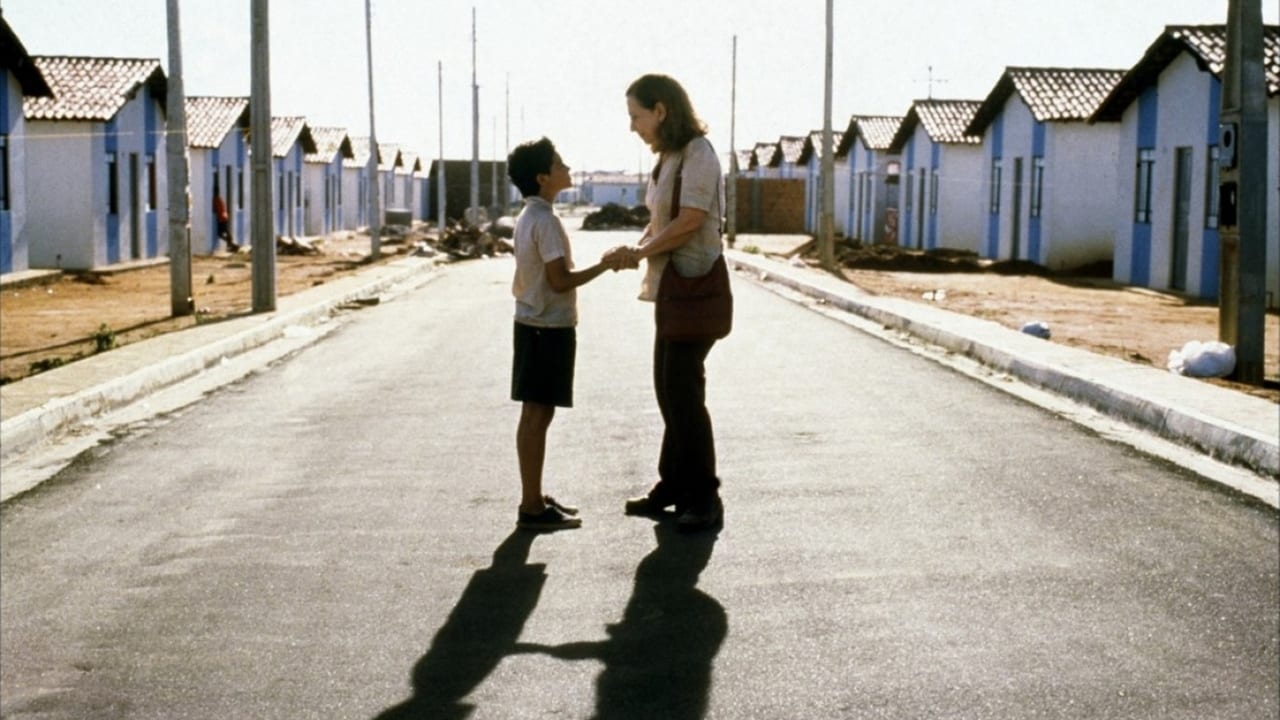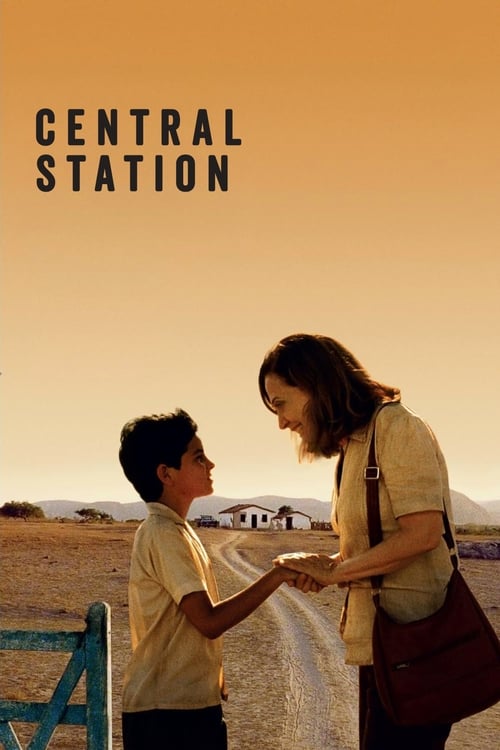
Central Station

An emotional journey of a former school teacher, who writes letters for illiterate people, and a young boy, whose mother has just died, as they search for the father he never knew.


An emotional journey of a former school teacher, who writes letters for illiterate people, and a young boy, whose mother has just died, as they search for the father he never knew.
An amazing screenplay plus a perfect acting by Fernanda Montenegro. This is what I call "a beautiful movie".
the best movie, chorando com esse final que história emocionante
It's an awesome coming-of-age movie "on the road", although it's reductive calling it in this manner. It is certainly a masterpiece. I gave "only" 9 stars because the topic and the storytelling is not so original, in fact I noticed the director took from the italian neorealistic cinema on both hands.
Lastly the original title (Central do Brasil) is better than the anonymous "Central Station"
The greatness of “Central Station” isn’t just in the story it tells, but in how it tells it. Walter Salles directs the film with the kind of sensitivity that really understands the power of silence, longing, and everything left unsaid. Far from the kind of fantastical escapism that cinema often leans into, “Central Station” keeps both feet firmly planted in a harsh, faded, and painfully human reality. It’s a film that pulses through the everyday: a train station where thousands pass unnoticed, letters written for people who will never read them, a boy who loses his mother on the sidewalk and slowly finds love in the unlikeliest heart.
Dora (played by Fernanda Montenegro) is a bitter former teacher who makes a living writing letters for illiterate people at Rio de Janeiro’s bus station. Her cynical, disillusioned life takes an unexpected turn when Josué (Vinícius de Oliveira), a nine-year-old boy, is left orphaned after his mother (Soia Lira) dies in a tragic bus accident. Dora is the embodiment of survival mode: cold, self-serving, pocketing money from letters she never mails. At first reluctant to take any responsibility for the kid, she eventually ends up traveling with him across the Northeast of Brazil, looking for the father Josué has never met. The film’s linear structure might seem simple, but it’s filled with emotional turns that slowly chip away at Dora’s hardened exterior. The script, by João Emanuel Carneiro and Marcos Bernstein, uses Josué’s loss not just as the emotional spark for the plot, but as a mirror forcing Dora to face what’s left of her own humanity.
The dynamic between Dora and Josué is the heart of the movie. At first, they really can’t stand each other—and what’s most fascinating is how natural that feels. It’s not dramatized, just deeply real. Josué is sharp, curious, and emotionally unfiltered, a total contrast to Dora’s emotional stiffness. Their journey across the country is emotional, physical, and symbolic all at once. The Brazilian Northeast isn’t just some picturesque backdrop; it’s an essential part of the story. Salles’ camera treats the landscape with a quiet kind of reverence. No romanticizing. Just honesty. The Brazil shown here is the invisible one—the one of long distances, dry land, broken promises, and a kind of stubborn hope that won’t go away even when everything else does.
That storytelling sensitivity is matched by the film’s technical artistry. Walter Carvalho’s cinematography is melancholic but never overdone. The warm tones of the sertão, the visual contrast between city and countryside, and the close-ups on the characters’ faces often say more than any line of dialogue could. Every frame seems designed to express what Dora herself can’t articulate. The score by Antonio Pinto and Jaques Morelenbaum is another key piece. Minimalist but spot-on, it gently heightens the emotional weight of the story without ever going for cheap manipulation.
But honestly, nothing compares to Fernanda Montenegro’s performance. What she does in “Central Station” goes way beyond acting—it’s emotional architecture, built line by line, glance by glance. Dora, with all her toughness and vulnerability packed into a single look, is one of the most complex characters in Brazilian cinema—and that’s thanks to Montenegro’s generosity as a performer. When she reads that final letter to Josué, the screen just melts into pure feeling. No dramatic music, no exaggerated tears. Just her cracking voice, her honest tone, the quiet truth of a woman transformed by the unexpected love of a child. Crying at that moment doesn’t even feel like a reaction—it feels like a realization: when cinema is this honest, it cuts through everything.
The film also scores major points for not giving in to a neatly tied-up ending. The family Josué finds at the end of the road isn’t a picture-perfect solution—it’s a maybe, a possibility, and probably the only shot at belonging. Dora and Josué’s goodbye is painful because it holds a world of unspoken things, of freshly discovered feelings that won’t have the time to fully grow. But it’s also real, and that makes it the perfect ending. Life doesn’t let anyone off easy, but there’s still a way forward.
“Central Station” is, at its core, a story about absences: missing parents, missing futures, missing safety nets. And yet, it finds beauty in small gestures—in the empathy that sparks between two people who had nothing left to give or expect. It’s a film that bleeds realism but still believes, with its feet planted in the dirt, in the possibility of human connection. In the end, that little photo Dora and Josué take together becomes more than a keepsake—it’s a promise. That even in the distance, even through pain, something real was built. And no one can take that away.
A beautiful and touching movie. I'd say that it's the best brazilian movie.
Insane screenplay by Walter Salles; clearly inspired in some Italian movies. The sound score of this movie is phenomenal. Got an extra point just because the final song is _Preciso me Encontrar_ by Cartola.
The original title of the film is Central do brazil.
An amazing screenplay plus a perfect acting by Fernanda Montenegro. This is what I call "a beautiful movie".